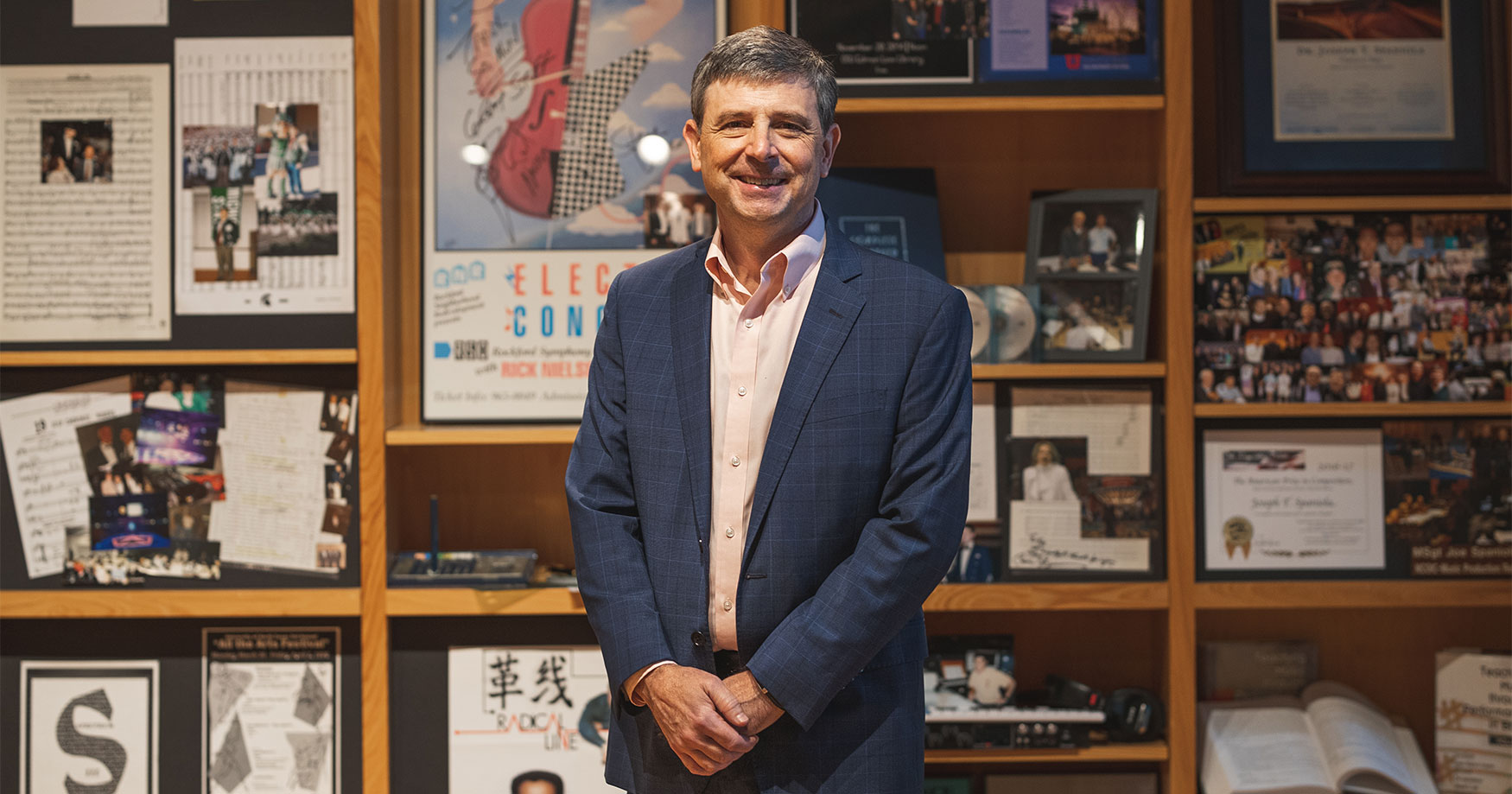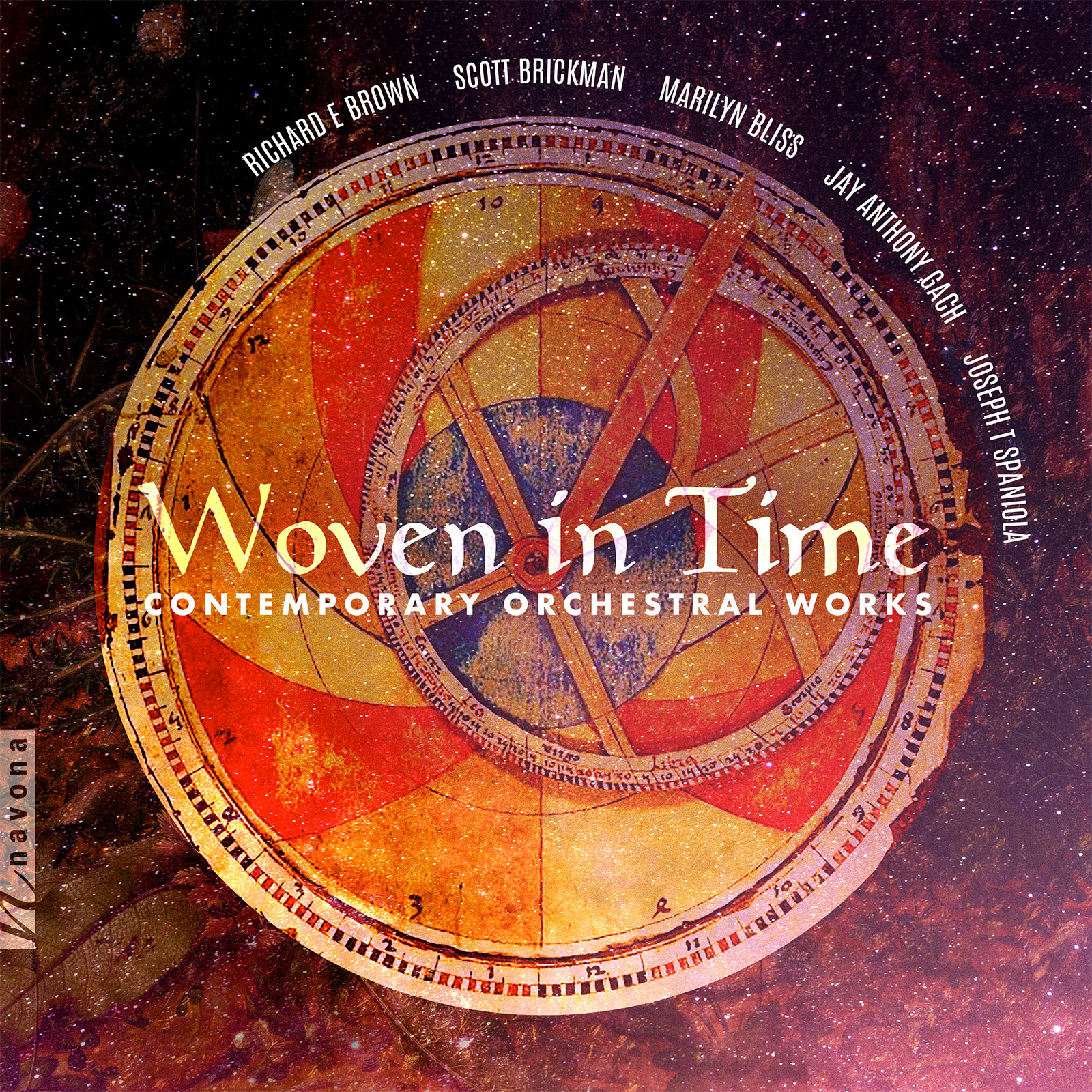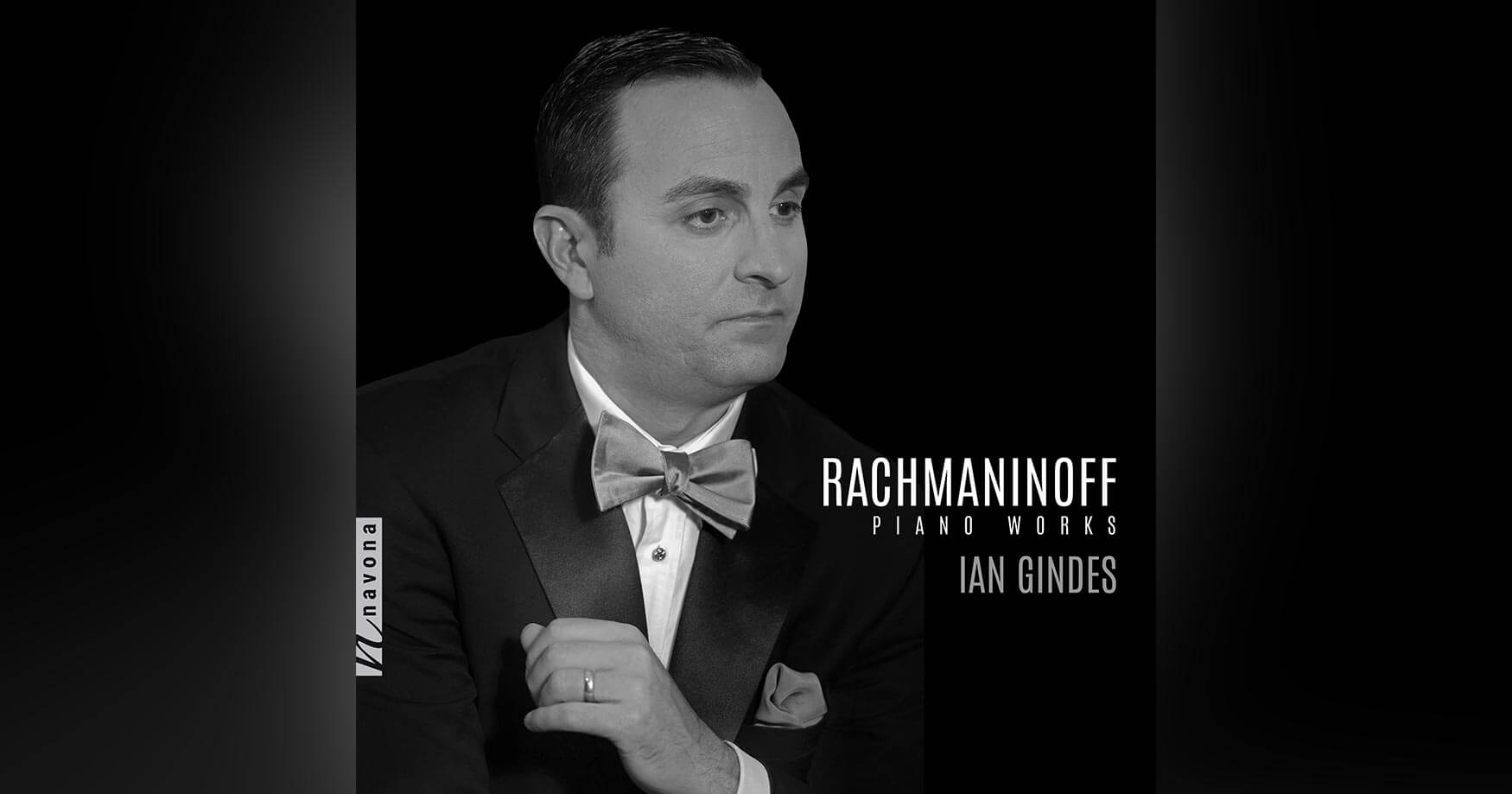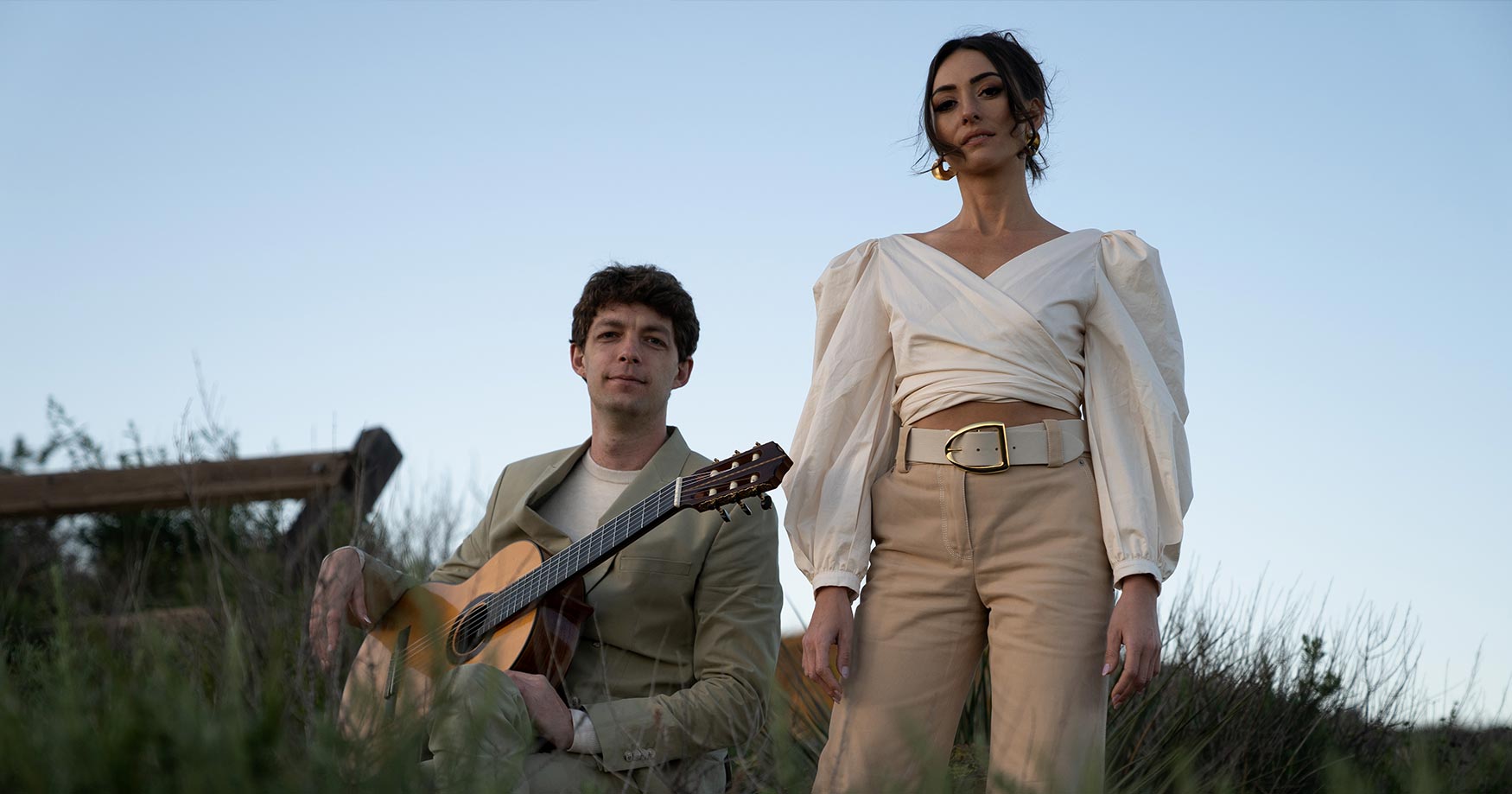WOVEN IN TIME from Navona Records weaves culture and ideas of the past with a modern approach to composition, revitalizing and repurposing the popular culture and literature of yesterday into contemporary music for our enjoyment today. Joseph T. Spaniola’s piece, Thomas Jefferson: Life Lines reaches through time to express the diverse and passionately written personal letters of its titular figure.
Today, Joseph is our featured artist in “The Inside Story,” a blog series exploring the inner workings and personalities of our artists. Read on to learn about Joseph’s detailed approach to performance preparation, and the value he finds in all types of music…
What inspires you to write and/or perform?
While I enjoy performing, my passion is for composing. Composing and arranging engage my heart and mind in an all-encompassing way. Writing helps me to get in touch with my thoughts and feelings at a deep level, and in turn, it allows me to express myself more fully. It also allows me to examine and understand the perspective of others. I believe music has the potential to communicate at a more universal level, to tap into the commonality of the disparate experiences of all who listen and bring them together. Composing allows me to examine the human condition, to hear and be heard, and to engage the hearts and minds of performers and audiences.
What advice do you have for young musicians?
As an educator, I think about this often and have the opportunity to give young musicians advice on a regular basis. The life of a musician is not for the faint of heart. It requires ceaseless dedication, discipline, and tenacity. It is a profession where, regardless of the musician’s level of expertise or the quality of their output, some will love, and, at the same time, others will despise what they present. While most of the population enjoys music, most think they should not have to pay to hear or support it. It is a hard road. Despite this seemingly gloomy assessment, I can think of no occupation that is more rewarding for the passionate musician. For those who possess the inner-fire, I give the following advice: be true to yourself; have high standards; be pleasantly persistent; be curious; listen to, explore, and understand any and all music you can; be on time; be prepared; be the musician with whom people like to work; read and understand any contract before you sign; build strong networks — it is often about who you know rather than how talented you are. Finally, always remember: it is all about the music.
Do you have any specific hopes about what this album will mean to listeners?
For my contribution on this album, Thomas Jefferson: Life Lines, I hope listeners will discover the intimate, human qualities of Jefferson, and try to better understand this complicated individual. With the benefit of researching the man, living with his words, and composing this piece of music, I discovered compelling reasons for exploring the words of Thomas Jefferson. Despite countless historical studies of the man, he remains a mysterious figure who still commands the interest of a wide variety of people. Whether one idolizes or despises Jefferson, his thoughts evoke an emotional response in most people. In many ways, Jefferson was an ordinary individual. His life consisted of triumph and tragedy, joy and pain, success and failure, and he struggled to make sense of the world around him. However, unlike most, he was extremely dedicated, disciplined, determined, and independent. These qualities enabled him to accomplish extraordinary things. Jefferson would argue that the ordinary individual possesses these qualities, but that most people have neglected to develop them. It is my hope that the listener may judge this work as they judge Thomas Jefferson, all people, and all music for what it is, rather than for what it is not.
How do you prepare for a performance?
Music performance. Actually, music in general is about communication. To be effective and convincing, the performer must develop a vision or at least a basic understanding of what they are trying to communicate. This vision should be the guiding principle for all musical decisions. To properly prepare any piece of music, the performer needs to understand its structure and form. Locate the generating musical material and see how it is presented, developed, and evolves, and, most importantly, determine how these components support the overall vision of the work. Next, work out the physical execution of the notes, rhythms, phrases, etc. Finally, put everything together. In essence, my approach is to work from the macro to the micro then back to the macro. I believe the key is to know the music so well that it becomes a part of you. Rather than having to think about it, it can simply be. The music is more likely to sound natural, authentic, and convincing. When it comes time for the actual performance, one only needs to relax, focus, and enjoy the experience.
How have your influences changed as you grow as a musician?
Music reflects the period, culture, and people for whom it was written. I contend that regardless of the style or genre of music, there are high quality and low quality examples. In general, people gravitate to the music that resonates with them and dismiss music that does not, often concluding that the dismissed music is somehow inferior. This is a very limiting approach to music. The more I study music, the more I realize that there can be much value found in music that does not naturally resonate with me. It takes more effort to investigate, but by working to discover what it is all about, I can then appreciate what is being presented. With this understanding, I can then make an informed judgment on its level of quality regardless of my like or dislike of the music. With this approach, any style or genre of music has the potential of being an influence. It has greatly expanded my musical horizons and helped me more fully appreciate an ever-expanding group of periods, cultures, and people.
Who are your musical mentors?
Over the years, I have had the great fortune of having incredible teachers and colleagues. Though too numerous to list them all, each has contributed to my development and growth as a musician. The foundation of my formal music education came from the faculty at Michigan State University where Curt Olson, Charles Ruggiero, and Jere Hutcheson were particularly impactful. At Boston University, my study with Sam Headrick helped me define my musical path. In the professional world, John Moss took me under his wing as mentor and colleague. He showed me the way, trusted my yet unproven abilities, and engaged in many invaluable philosophical discussions. At the University of North Texas, Cindy McTee helped me refine my artistic voice and to learn how to objectively self-assess all aspects of my work. All my mentors are dedicated, disciplined, and passionate individuals. They shared and continue to share their knowledge and wisdom with me, directly or indirectly by revisiting their prior words of counsel. They challenged me and afforded me the space to challenge them. They created vibrant environments for learning and growth based on mutual respect and professionalism. I am grateful for them and hope to emulate their shining example.
Explore Joseph’s Latest Release
WOVEN IN TIME
WOVEN IN TIME is available now from Navona Records. Click here to visit the catalog page and explore this album.




